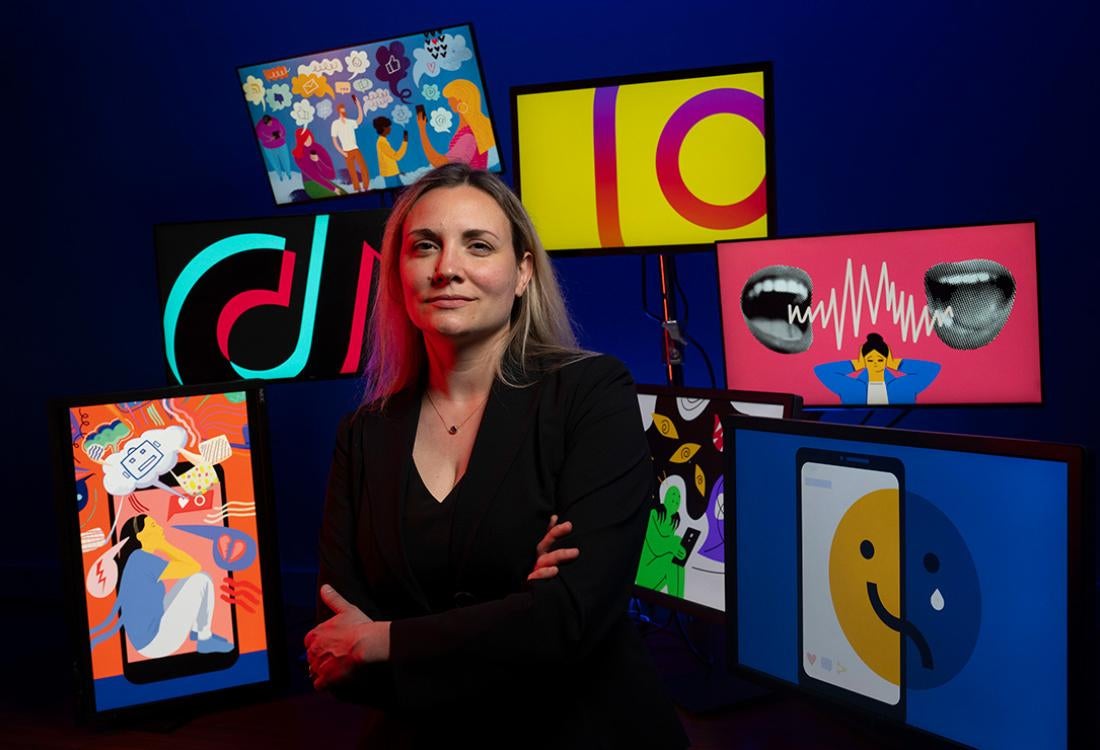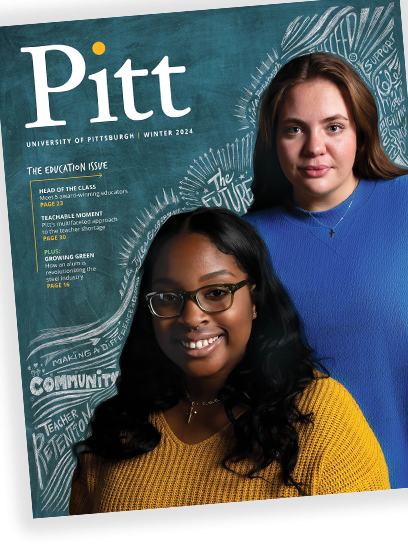
Sophia Choukas-Bradley is submitting her first paper about adolescents and social media to a psychology journal. It’s 2014, the early days of online culture, before teens lived on likes and danced on TikTok, and before parents and experts worried too much about the consequences.
Perhaps it explains why Choukas-Bradley’s paper is so quickly rejected, and why the journal’s anonymous peer reviewers offer her such a chilly — and ultimately shortsighted — rebuke.
Why would we study things online when we already know what happens offline? This is just the same thing in a slightly different form.
“And now everyone laughs when I say that,” she says. “Because anyone who's a parent, and anyone who has been a teen during the years of modern social media, understands that this is fundamentally different.”
Choukas-Bradley, an assistant professor of psychology at Pitt, has spent more than a decade studying interpersonal and sociocultural influences on adolescent mental health, with an emphasis on social media, body image and LGBTQ+ youth.
She’s coined terms that are now commonplace in the discipline, published nearly 80 papers and served on two American Psychological Association expert advisory panels to develop guidelines for adolescent social media use — the first of which influenced the 2023 Surgeon General’s report.
“I’m just really interested in how social media changes how we view ourselves,” she says.
It all began in middle school when Choukas-Bradley noticed how she and her friends turned from carefree kids to self-conscious teens, preoccupied with the way the world judged their bodies and behaviors. Years later, as a graduate student at the University of North Carolina, she observed how the ubiquity of smartphones and the always-on nature of social media turned up the volume on those already pulsing adolescent body image issues. She calls it “the perfect storm.”
Through her research at Pitt’s Teen and Young Adult (TAYA) Lab, Choukas-Bradley has been able to show that teens’ constant worry about being judged by an online audience — known as appearance-related social media consciousness, or ASMC — not only magnifies body image concerns but can also manifest in disordered eating and depressive symptoms.
This phenomenon has become a focus of the TAYA Lab, which Choukas-Bradley founded in 2017. Her team uses multiple methods — large-scale questionnaires, in-depth interviews and even eye-tracking devices that reveal what teens are looking at online (spoiler alert: they’re fixating on attractive images) — to better understand the dangers of social media and develop interventions to diminish its negative power.
Her research shows that disordered eating and depressive symptoms influenced by social media use are more pervasive among teens who identify as girls and LGBTQ+ youth and that simply warning teens of the danger isn’t enough.
Together with Brian Galla from Pitt’s School of Education, the Center for Digital Thriving at Harvard (where she serves as the clinical psychology lead) and Common Sense Media, Choukas-Bradley has created evolving intervention materials that show teens how big tech intentionally targets youth, manipulating images, information and — ultimately — their own views.
But Choukas-Bradley is quick to add that social media isn’t all bad. In fact, for most teens, it’s become a critically important part of interpersonal development. And, for many LGBTQ+ youth, particularly those who live in rural communities or who don’t have parental support, social media is a lifeline, providing connection and acceptance they may not receive in their physical communities.
Recently, Choukas-Bradley received a prestigious National Science Foundation CAREER Award, which will allow her to study 300 girls over 18 months using multiple research methods to better understand the breadth and depth of how teens experience their time online.
“I believe it's important not to figure out how we can get kids offline — I think social media is here to stay — but to figure out how to have the time spent online be more positive and values-aligned.”



